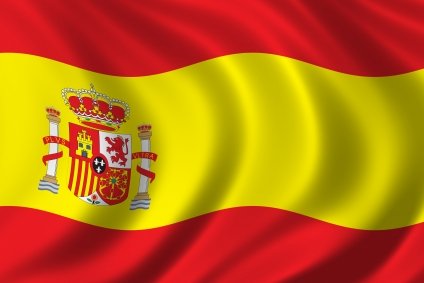¡Hola amigos de Steemit!
I've been counting the days until I've been able to cover the fascinating topic of Spanish numbers ...
The only problem with numbers is that, well, there're just so many of them. How inconsiderate of the Spaniards. Anyway, the plan is as follows: we'll split them up into smaller chunks, like that delicious chocolate cake you can't quite manage all at once (as if) but are adamant you will eat in its entirety. So, without further ado, here are the numbers 1-10:
0 - cero, 1 - uno, 2 - dos, 3 - tres, 4 - cuatro, 5 - cinco, 6 - seis, 7 - siete, 8 - ocho, 9 - nueve, 10 - diez
Finally, something straightforward about Spanish! you're probably thinking. But alas, 13 billion years ago somebody decided that life isn't allowed to be easy, and so uno does its own thing:
- uno changes to un before a masculine noun: el libro (the book) → un libro (one book)
- uno changes to una before a feminine noun: la pluma (the pen) → una pluma (one pen)
- when counting generically (one, two, three ...) use uno, but when counting specifically (one cat, one dog ...) make sure to use the correct form of uno, as explained above.
Numbers 11-19
These numbers are also a bit irregular, so we'd better have a quick look:
11 - once, 12 - doce, 13 - trece, 14 - catorce, 15 - quince, 16 - dieciséis, 17 - diecisiete, 18 - dieciocho, 19 - diecinueve
- notice that diece (ten) has swapped its e for an i in the numbers 16-19.
- notice that seis (six) has an accent in the word dieciséis.
Numbers 20-29
Numbers 20-29 are the last numbers before we can apply the magic formula, so bear with me for a little longer:
20 - veinte, 21 - veintiuno, 22 - veintidós, 23 - veintitrés, 24 - veinticuatro, 25 - veinticinco, 26 - veintiséis, 27 - veintisiete, 28 - veintiocho, 29 - veintinueve
- similarly to diece, we also swap the e for an i with veinte (twenty).
- there are accents in 22, 23 and 26. (If you're interested in a blog on when and why words need accents, let me know in the comments.)
The tens
You'll need these in order to use the magic formula!
10 - diez, 20 - veinte, 30 - treinta, 40 - cuarenta, 50 - cincuenta, 60 - sesenta, 70 - setenta, 80 - ochenta, 90 - noventa
The magic formula!
It's finally here! The magic formula is very simple and applies to all "tens" numbers, with the exception of 1-29 of course. Here it is:
Number = tens + y (and) + units
Examples: 33 = 30 + y + 3 = treinta y tres
57 = 50 + y + 7 = cincuenta y siete
89 = 80 + y = 9 = ochenta y nueve
Hundreds in the magic formula
You might want to use the magic formula for a number above a hundred. Here's how ...
100 - cien, 200 - doscientos, 300 - trescientos, 400 - cuatrocientos, 500 - quinientos, 600 - seiscientos, 700 - setecientos, 800 - ochocientos, 900 - novecientos
Number = hundreds + tens + y + units (cien becomes ciento in this formula; there's no need for an y between the hundreds and the tens/units, only between the tens and units.)
Examples: 145 = 100 + 40 + y + 5 = ciento cuarenta y cinco
206 = 200 + 6 = doscientos seis
999 = 900 + 90 + y + 9 = novecientos noventa y nueve
The silly-big numbers
This is the last one, I promise!
1.000 - mil, 2.000 - dos mil, 10.000 - diez mil, 100.000 - cien mil, 1.000.000 - un millión
- notice how decimal points are used instead of commas.
- like the hundreds, none of these numbers need an y between themselves and the following number.
Example: 123.456.789 - ciento veintitrés millones, cuatrocientos cincuenta y seis mil, setecientos ochenta y nueve
Phew, I need to go for a lie-down after that! So there you have it, the formula to work out any number you could possibly want to know. These were the cardinal numbers (one, two, three ...); we'll go over ordinal numbers (first, second, third ...) in a later episode. ¡Adiós!
- The Loopy Linguist

Excelente aporte! Te invito a dar tu opinión en mis posts!
@gabrielmendez ¡muchas gracias! Lo leeré ahora :)